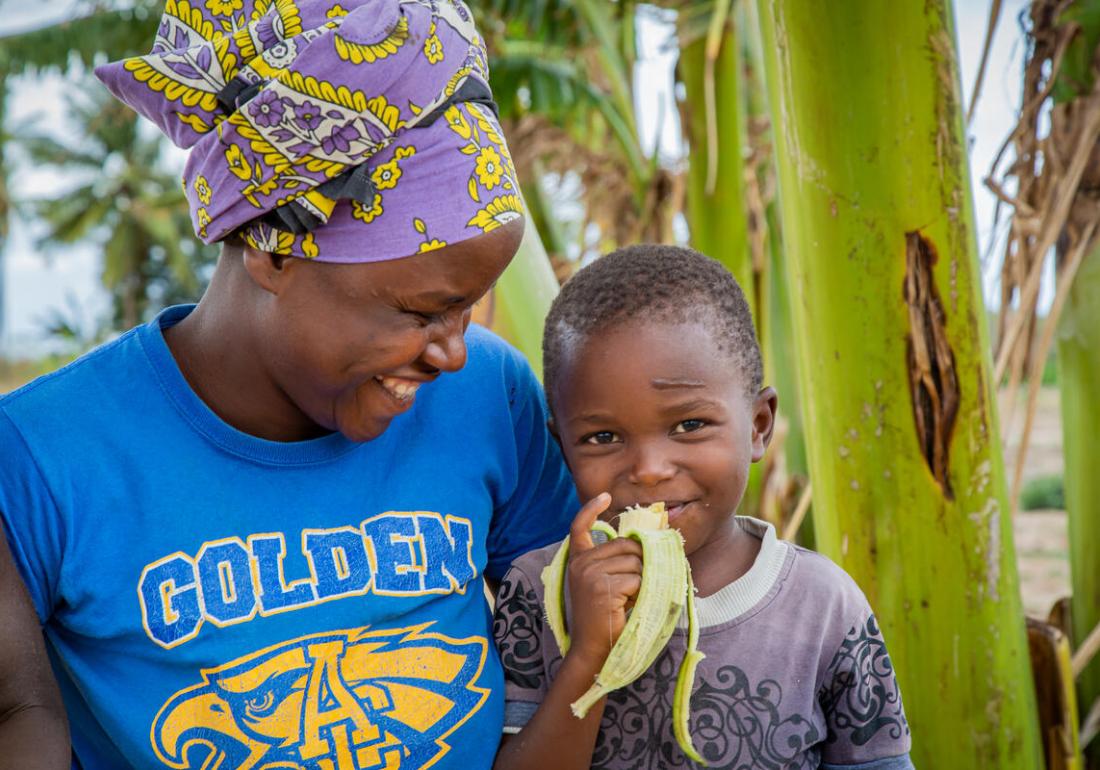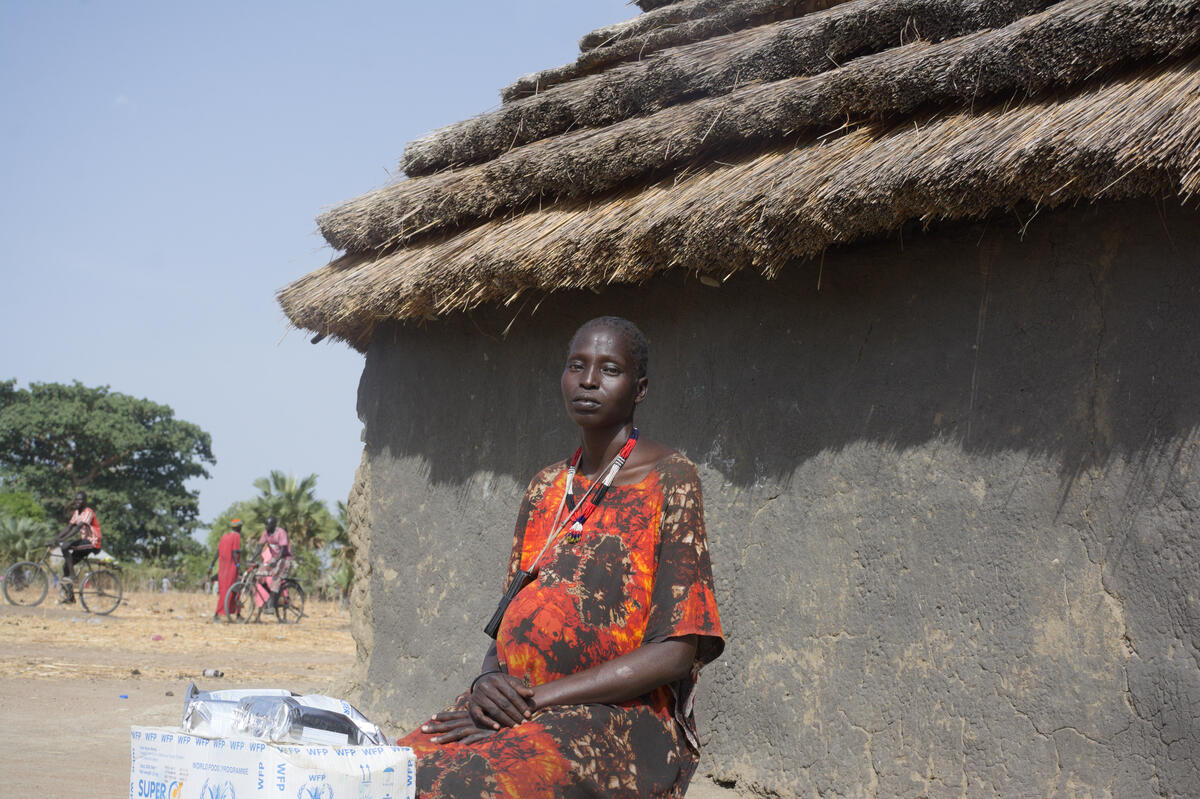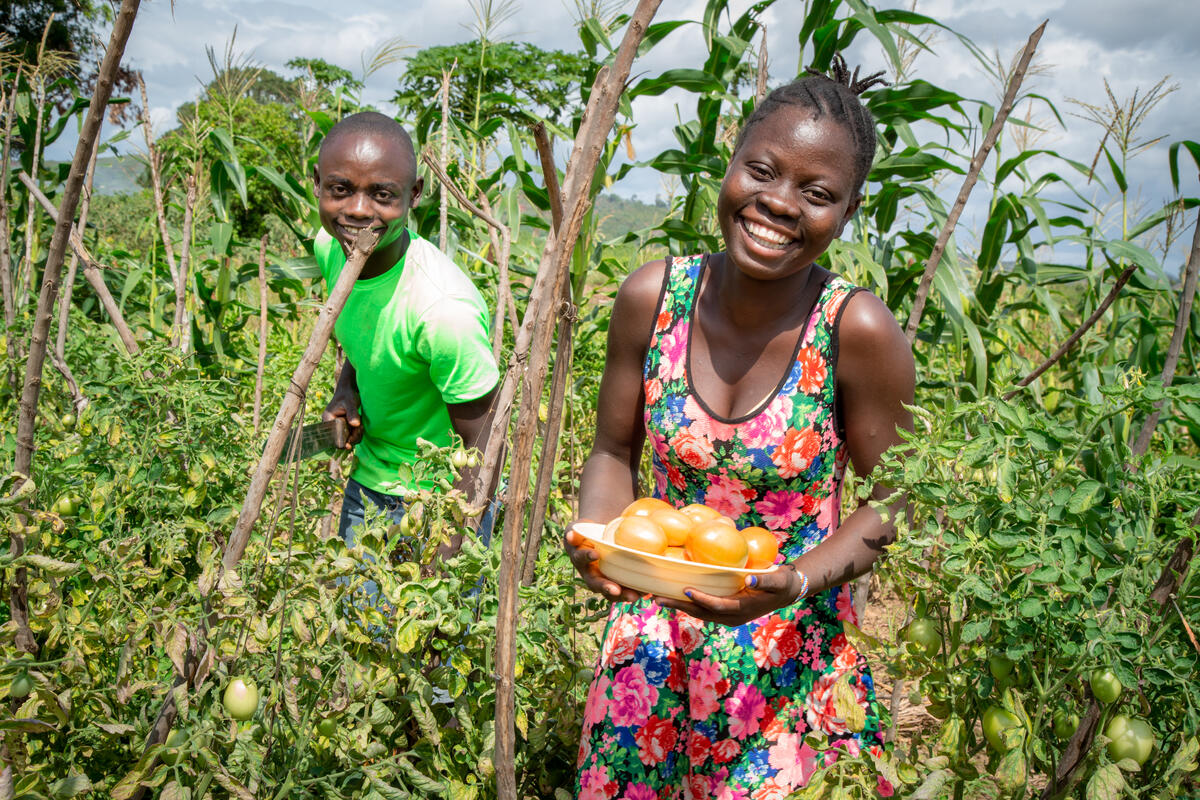“Mothers are tired of burying their own children”
Boosting community resilience through climate-smart agriculture in South Sudan
According to the 2022 South Sudan Humanitarian Needs Overview, the number of internally displaced people in the country rose from 1.7 to two million from 2021 to 2020 as a result of the effects of climate change and conflicts. At least 55 per cent of the affected people are women and girls.
“The year 2021 was one of the worst years for us in Tonj North County. We faced communal conflicts and floods which moved people from place to place and made it very difficult to farm”, says Elizabeth.
“We were displaced from about 8-9 payams to Warrap town for safety due to the conflicts caused by cattle raiders. We also faced floods”, she adds.
Elizabeth Achan, a 29 years old mother of four, is one of the women and faith leaders engaged by World Vision in the county and the vice-chair of its peace committee composed of 10 members. Tonj North is part of South Sudan’s Warrap State.
“Women are the most vulnerable during conflicts. They lose husbands and children. Women also become responsible for the family’s welfare. When fighting affects farming, our children go hungry. It breaks our hearts”, she shares.
Elizabeth expressed frustration that as cattle raids and revenge killings became a norm in the county, children, especially boys, grow up thinking that cattle theft is a normal thing to do.
With the support of World Vision’s Fortifying Equality and Economic Diversification for Resilience (FEED II) Project funded by Global Affairs Canada, a youth group in Juba organized a peace initiative and formed peace committees led by faith and community leaders.
The peace committees are important structures in communities that bring representatives from different groups together to discuss their grievances. Making them sit together for a dialogue is already a significant accomplishment.
In Tonj North, the peace committee was composed of church leaders, youth representatives, cattle keepers, chiefs from the 11 payams and some women leaders which include Elizabeth. The committee was tasked to help resolve differences between the warring youth groups and encourage reconciliation and harmony.
In addition to youth and chiefs, it was important to have women participate in the peace initiative. While both women and men are affected by conflict in different ways, women offer different non-violent ideas and solutions.
“Most of the time, it is also women experience who experience gender-based violence at home. As mothers, we have a strong incentive to embrace peace in our community”, she adds.
The FEED II Project links women and men together in farming and business groups to help them develop peaceful practices. When there are outbreaks of conflict, the project continues to support community-led peace committees.
“The three-day conference was a success. Since January 2022, the county has been calm. It will start to rain in April and May and we look forward to getting back to our farms to plant without the threats to our safety. All we we want is to provide for our families”, she shares.
Project Manager Kon Awet Awet says, “The support provided by the project to the peace committee was necessary. The displaced women and children have returned to their homes which was good sign to start the peaceful co-existence among the people.”
Elizabeth and many women in Tonj North are optimistic that the peace they are experiencing now will hold. She says, “We believe it takes us all to work for peace and live harmoniously. We urge World Vision and partners to support the committees in holding more dialogues as I believe nothing can be achieved in just a day.”
“My hope for South Sudan is that people will finally realize that many lives were lost from the fighting and we need to start building peace. Mothers like me are tired of burying our own children”, Elizabeth adds.
Awet Awet concludes, “Violence disrupts farming and increases people’s vulnerability. Most South Sudanese are agro-pastoralists using the fertile soil around them. Peace is needed for people to utilize the land for farming and move on from conflict. My hope is that one day my country will be hunger-free.”
The FEED II Project is implemented through the partnership between World Vision, CARE Canada and War Child Canada.




